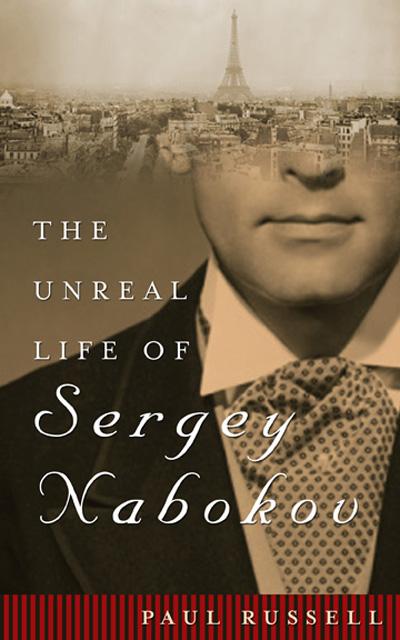The charge of homophobia has long haunted Vladimir Nabokov. The Russian author – arguably the 20th century’s greatest author of prose fiction – is perhaps best known for the controversial Lolita, but it is not only his fiction that has enshrined him in the Western canon; Nabokov’s magisterial autobiography, Speak, Memory, ranks along with Stephen Spender’s World Within World among the greatest feats of the memoirist’s art. Nabokov illuminates many facets of his life and art in the pages of his memoir, but it isn’t until the third edition of Speak, Memory that he finally included a named reference to his younger brother Sergey Vladimirovich Nabokov. The younger Nabokov, whose soft beauty stares out from the Nabokov family photographs in Speak, Memory, was never fully sketched by his famous brother.
At the age of 16, Vladimir discovered the diary of his enigmatic 15-year-old brother lying open on a desk. The professions of gay love he found within its pages scandalized Vladimir. He promptly shared the contents with his tutor, who in turn handed it over to the Nabokovs’ politician father. The diary contains details of what Vladimir called “a retroactive clarification of certain oddities of behavior on [Sergey’s] part”; here Nabokov’s homophobia is caught, as Harold Abrahams says of anti-Semitism in Chariots of Fire, “on the edge of the remark.”
This adolescent outing is emblematic of the complicated relationship between the Nabokov brothers throughout their highly disparate lives. This is the back story to American novelist and professor Paul Russell’s newest book, The Unreal Life of Sergey Nabokov. As Russell reveals in the afterword to the novel, his inspiration came from a May 2000 article by Lev Grossman for salon.com entitled “The Gay Nabokov.” The article makes use of Sergey Nabokov’s few surviving letters – as well as a smattering of comments his elder brother made about their relationship – to construct a portrait of the hidden Nabokov. Russell sets about filling in the many gaps in Sergey’s life so he might rescue the delicately handsome boy in the photographs from the recesses of historical oblivion.
Russell’s novel is framed as a series of diary entries. This tactic, while one of the hoarier literary chestnuts on which to hang a drama, is nonetheless effective as well as relevant, considering both brothers’ histories as diarists. While verging on cliché, this framing device allows for an intriguing parallel narrative: Sergey, while working for the Nazi Ministry of Propaganda, attempts to dodge the Gestapo after uttering a subversive statement against the Reich. These passages are intercut with scenes from his past: a privileged Russian childhood, study at Cambridge, an opium-soaked friendship with Jean Cocteau, the world of Diaghilev’s Ballet Russes, and Gertrude Stein’s salon at 27 Rue de Fleurus.
Russell is uniquely qualified to tackle the subject matter, seeing as he wrote his doctoral thesis on Vladimir Nabokov at Cornell University. Russell’s extensive knowledge, however, sometimes betrays him, as Sergey’s “unreality” contains so many meticulous historical details that it nearly overwhelms the narrative. Sergey seems to encounter every possible bright light in the early-20th-century’s gay firmament. In prewar Berlin he even attends a function hosted by the Scientific-Humanitarian Committee, the world’s first gay rights group – and is introduced to its founder, Dr Magnus Hirschfeld. Russell’s historical references begin as clever but slowly mutate into insipid in-joking; the loudest groan comes when Stein casually remarks that she really wouldn’t be surprised if her lover, Alice Toklas, got around to writing an autobiography one of these days.
Russell’s beautiful prose earns him the occasional dip into self-indulgence. The ruins of Berlin after a British air raid are rendered by Russell as “the mouth of an old man – most of his remaining teeth are blackened stubs, and in between are gaps and bare ravaged gums.” Upon his first encounter with a lover, Sergey proclaims, “In the tender chambers of my heart the just-hatched dragon flexed its lovely, lethal talons.” Here Russell approaches E M Forster’s description of a similar scene in Maurice: “Section after section, the armies of humanity were coming alive.” Russell’s gift for description matched by his elegant evocations of Sergey’s tender, and often fragile, emotional life maintains forward thrust when the narrative begins to stall around the three-quarter mark. What remains clear is that, for Russell, telling Sergey Nabokov’s story is a matter of love, and a certain amount of over-zealousness is expected in matters of love. As Vladimir Nabokov proclaimed in a 1962 interview with the BBC, “The more you love a memory, the stronger and stranger it is.”
Despite the delight it occasionally takes in its own cleverness, The Unreal Life of Sergey Nabokov remains an insightful and moving glimpse into the inner life of a sensitive gay man existing in the long shadow of a famous brother. Sergey Nabokov’s life ended amid the horrors of Neuengamme concentration camp. In Russell’s version of his unreal life, the only constants are an endless search for love and beauty in dark times.

 Why you can trust Xtra
Why you can trust Xtra


